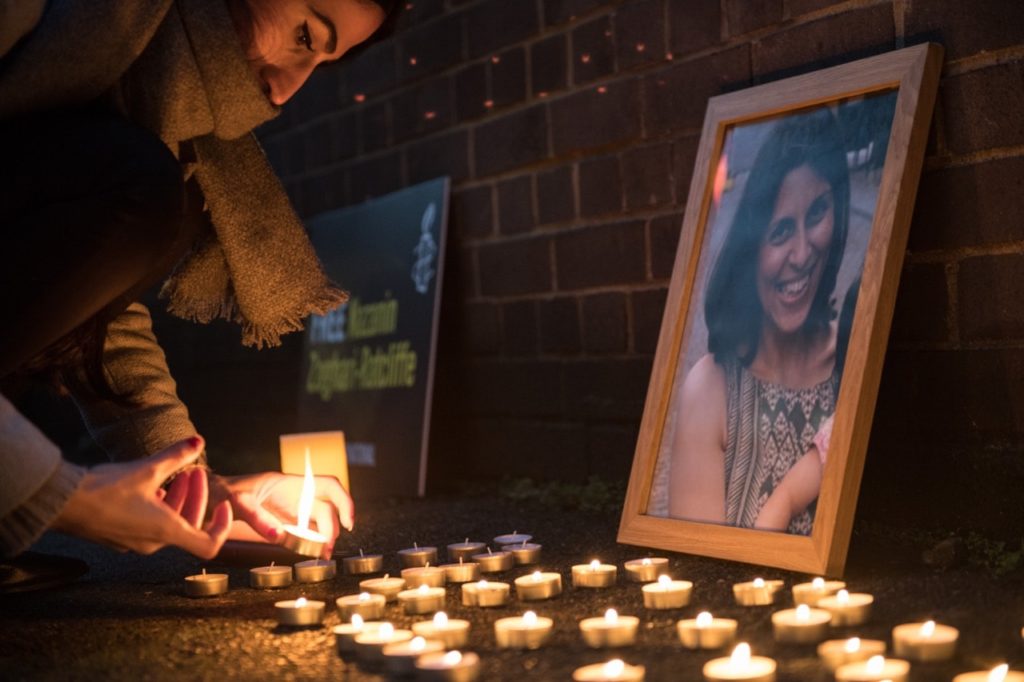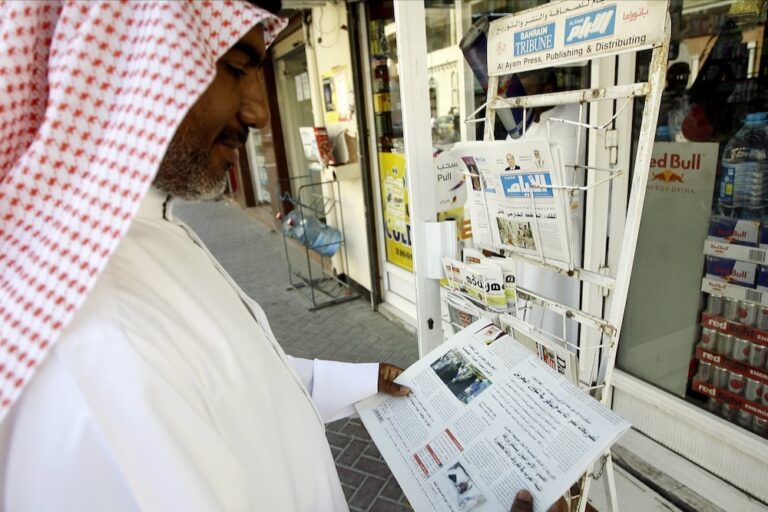Amid concerns of the virus impacting thousands in overcrowded prison cells across the MENA region, the Gulf Centre for Human Rights joins growing appeals for governments to free all prisoners of conscience.
This statement was originally published on gc4hr.org on 17 March 2020.
The Gulf Centre for Human Rights (GCHR) welcomes the appeal by the United Nations special rapporteur on human rights in Iran for the authorities in Iran to free all prisoners of conscience, including women human rights defenders. GCHR further calls on every country in the Middle East and Northern Africa (MENA) to also heed his request. Prisoners in Iran, Bahrain, Egypt, Syria, Saudi Arabia, and the United Arab Emirates are among the countries where prisoners are often held in crowded, dirty prisons with inhumane conditions such as poor hygiene and no access to clean water or proper medical care.
After Iran announced earlier this month that it was temporarily freeing 70,000 prisoners to stop the spread of COVID-19, UN special rapporteur Javaid Rehman called on the authorities to release all prisoners of conscience, including human rights defenders serving lengthy sentences as well as those who arrested during protests in November 2019. None of them have been freed, including British-Iranian citizen Nazanin Zaghari-Ratcliffe, who has reportedly possibly already contracted COVID-19. In the press briefing Rehman also mentioned human rights defender Narges Mohammadi. Both women, along with human rights lawyer Nasrin Sotoudeh, have been ill in prison prior to the virus outbreak. On 16 March, Sotoudeh and other women started a hunger strike in Evin prison to protest the authorities’ refusal to release prisoners of opinion amid the outbreak.
“I am highly concerned that hundreds, if not thousands, of November protesters detained are currently experiencing hardship in overcrowded facilities,” Rehman said during a Geneva press briefing, where he described the unhygienic conditions which had already caused other infectious diseases to spread.
Such conditions mirror those across the region. “While the World Health Organisation continuously stresses social distancing, quarantine and hygiene above all, human rights defenders in prisons across the Middle East don’t have the privilege to access proper hygiene or showers, and many are kept in overcrowded prisons,” said Khalid Ibrahim, GCHR’s Executive Director. “Now is the time for governments in the region to admit their inability to prevent the spread of COVID-19 in prisons, and free all prisoners of conscience in order to protect them from the deadly virus,” he further added.
In Bahrain, where 600 inmates at Jaw Prison went on mass hunger strike in August 2019 to protest poor conditions in their overcrowded cells, prisoners are often forced to sleep on the floor, eat poor quality food and drink unclean water. They include GCHR’s Founding Directors, Abdulhadi Al-Khawaja, who has repeatedly gone on extended hunger strike to protest poor conditions in Jaw prison, and Nabeel Rajab, who is kept apart from other human rights defenders. He has been at times held in filthy cells inhabited by hundreds of bugs and even a dead cat.
While Bahrain released 1486 prisoners starting on 11 March for “humanitarian reasons” related to COVID-19, under a royal amnesty that allows alternative sentencing, Rajab, Al-Khawaja and other human rights defenders were not among those released. In 2019, Rajab previously requested community service, as is his right under the law, but has been denied.
In the United Arab Emirates, human rights defenders are often kept in isolation cells, but with poor hygiene. For example, GCHR’s Advisory Board member Ahmed Mansoor is being held in an isolation cell with no mattress or bed and is not allowed to leave his cell to shower. At times during his imprisonment since 2017 in Al-Sadr prison, the water system has been cut off, leaving him with no water in his cell.
In Saudi Arabia, dozens of human rights defenders and activists are in prison simply for calling for women’s rights. While some of the women have been conditionally released since the mass arrests started in May 2018, others remain in prison awaiting trial, such as Loujain Al-Hathloul and Mayaa Al-Zahrani, scheduled to appear in court on 18 March 2020. UN experts have also called for them to be freed, along with other prominent women’s rights defenders including Samar Badawi, Nassima Al-Sadah, Nouf Abdulaziz and Mohammed Al-Bajadi.
In Syria, tens of thousands of detainees are kept in appalling conditions across the country, many held in unknown places of detentions that are beyond dreadful and extremely overcrowded, according to Syrian activists’ accounts. Many have been detained in Syrian government prisons for years for defending human rights, participating in peaceful protests or expressing dissenting opinions. Among them are prominent human rights lawyer Khalil Ma’touq and his assistant Mohamed Thatha, believed to be in government detention since October 2012.
In Egypt, hundreds of human rights defenders, academics, journalists, lawyers and activists are being held in violation of international law, including Arabic Network for Human Rights Information (ANHRI) staff lawyer Amr Imam, human rights lawyer Mahienour El-Masry, prominent blogger and activist Alaa Abdel Fattah, and journalist Esraa Abdel Fattah. Many detainees have been tortured, refused proper medical care, and are being kept in unsanitary conditions.
GCHR calls on the authorities across MENA region to take the opportunity of this worldwide COVID-19 pandemic to free all human rights defenders and prisoners of conscience because they do not pose a risk to the public, but rather are at great risk themselves. While detained, the authorities must uphold the UN Standard Minimum Rules for the Treatment of Prisoners, also known as “the Mandela Rules”, and provide higher levels of cell hygiene, appropriate access to healthcare and sanitary facilities.



